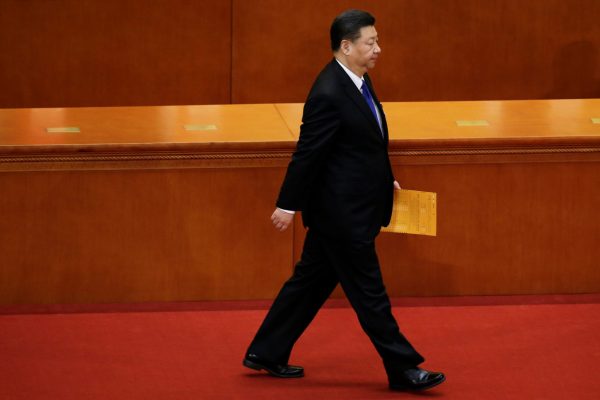Most analysts fear that this change creates conditions under which political crises, like the Great Leap Forward, which caused a famine affecting tens of millions, are more likely to happen. Systems with one person at the top who is so feared that no one opposes their bad ideas have led to many disasters in the past — especially in China.
Despite these concerns, others — including current Chinese President Xi Jinping himself — argue that this change aligns the constitution with Party rules and gives him the time needed to solve intractable problems, such as corruption and stalled economic reform.
In some ways, abolishing term limits does not tell us anything new about Xi Jinping’s rule. The Party has always operated outside and above the law, so any rules governing the use of power were not strong. In fact, there are many instances of leaders ignoring succession rules, with Deng Xiaoping wielding power without an official position and Jiang Zemin holding on to his military role after Hu Jintao took over as president and Party secretary.
This change to term limits is more a symptom of existing conditions than a cause. Xi Jinping has already usurped state power for the Party, and the fact that he can remove term limits demonstrates this ability. So all this decision tells us is that Xi Jinping’s anti-corruption campaign and efforts to recentralise political power have been successful in destroying or side-lining political opposition.
But because Chinese politics already existed in this informal power situation, the fact that Xi Jinping decided to publicly change the constitution makes this very significant. Since this was unnecessary for the exercise of power and because of the odd timing so early in his second term, this is clearly a signal. But for whom — an internal or external audience?
If for an external audience, perhaps the signal is that China’s commitment to being an important international player will continue. Or it could be to put Taiwanese officials on notice to re-join the mainland by Xi’s deadline of 2050 at the latest. Reunifying Taiwan with the mainland would immortalise Xi Jinping.
If for an internal audience, it could be aimed at diminishing social unrest by demonstrating its stability to Party members and the Chinese people because the threat of instability is high. But it is more likely intended to signal to any elite opposition that power consolidation is complete and any challenge is pointless (and dangerous). Removing term limits also takes away the opportunity for political rivals, and potentially citizens, to mobilise against Xi Jinping at the next congress.
Even if this change is merely a signal and not a true shift in power, it still matters greatly.
It matters, first, because even strong single-party states unified behind a current leader need to worry about elite cohesion. The strength of the Chinese Communist Party compared to other authoritarian regimes is in its ability to adapt to changing circumstances while keeping power transitions between elites orderly and off the streets. If ambitious elites do not have opportunities to advance to the highest positions of power, this might create elite fragmentation and lead to coup attempts and other strategies for seizing power.
These fears of elite challenge and potential citizen mobilisation might lead to more repression. As fears of elite opposition increase, so will surveillance and repression, which might expand further to ordinary citizens if the economy does not continue to provide increased standards of living and the Party fears social unrest and challenge to its legitimacy.
Second, this change creates the potential to destroy the foundations of good governance in China. Although China is an authoritarian and hierarchal regime, its fragmented governance system and subsequent informal space for policy participation have created more voices in the policy process and more adaptive governance. Increasing central power, especially a reorientation toward top-level design, decreases local discretion and damages problem solving ability. This move weakens the state, and in doing so it weakens the economic and political benefits of a strong state for Chinese citizens.
In addition to being wary of elite ambition, Xi Jinping will have to continue the responsiveness to the people’s demands that the Party has shown in the past. Otherwise he may struggle to remain at the helm and avoid another disaster of unilateral decision making like the Great Leap Forward.
Jessica C Teets is Associate Professor in the Department of Political Science, Middlebury College.

